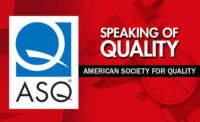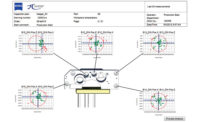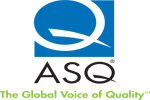"The research I envision would require teams to visit a sample of companies who had launched quality initiatives during the 1980s and 1990s," Juran said in remarks prepared for a recent conference at the University of Minnesota (UM, Minneapolis). The visiting teams would reconstruct what had taken place and why, evaluate the results achieved and look at the impact on the company cultures, he explained. The findings from the studies would then be analyzed to draw the conclusions that would appear in a public declaration.
Juran proposed the new study during a summit on quality leadership, June 25 to 27, organized by the Juran Center for Quality in Leadership at the UM Carlson School of Management. Other speakers at the event -- aimed at top executives and their boards of directors -- included U.S. Treasury Secretary Paul O'Neill as well as current or retired chairmen and chief executive officers from 3M, Ford and Motorola, among other companies.
Juran suggested that the Juran Center's Executive Advisory Board, made up of senior executives from industry and academia, should undertake the proposed research. The effort "would likely consume two to three years of calendar time and would require financing of several million dollars," he said, with the funding coming from pro bono sources such as nonprofit foundations. At press time, a spokesperson for the Carlson School said the idea is under consideration, but that no commitment has been made.
Juran, 97, has been an influential figure in the quality management movement for nearly 50 years. His Quality Control Handbook, first published in 1951 became a standard reference work, and in 1954, he delivered a series of lectures to Japanese managers that helped set them on the path to quality. Additional landmark publications from Juran followed. Juran founded the Juran Institute (Wilton, CT) in 1979 to help promulgate his ideas.
Among other remarks prepared for the Minnesota conference, Juran noted that ample evidence exists that leadership in quality is attainable, but that it can take a number of years. He estimates it took Japan approximately 35 years to become a quality powerhouse, starting with one of the worst quality reputations. While U.S. quality leaders started with better quality reputations, Juran says he knows of no U.S. company that became a leader in fewer than six years, and often it was closer to 10. He suggests the reason the journey is so long is because "most of the time was lost in exploring roads that lead to nowhere -- learning what not to do." Now, one of the challenges is to provide lagging companies with information that leads to quality leadership.
Juran sees the quality movement currently at an "impasse." It is known that quality leadership is attainable, what success factors and marginal processes have led to quality leadership and the magnitude of the potential gains. "Despite this array of knowledge, the bulk of our companies are not rushing to make use of it," Juran declares. He believes that the study he proposes, if initiated, would open the way for breaking the impasse.


